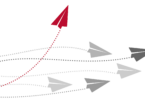Athens, Ga. – Educators from around the world will come to the University of Georgia on Sunday, Feb. 3 for the Fifth Annual Conference on Complexity Science and Educational Research at the Georgia Center for Continuing Education Conference Center and Hotel. The annual conference was established as a forum to facilitate understanding of the complexity sciences as they relate to the human sciences and to facilitate understanding of educational research.
The three-day conference (Feb. 3-5) connects faculty from a variety of disciplines with an interest in bridge concepts such as self-organization, adaptation, scale independence and social constructivism.
To highlight multiple perspectives and their importance to complexity-informed educational researchers, keynote speakers from different perspectives will open the meeting. The first, Glenda Eoyang, is the director of the Human Dynamics Systems Institute in Circle Pines, Minn. and has a background in physics and philosophy. The second, Alan Flurry, is the director of communications for the University of Georgia Faculty of Engineering. A musician and writer, Flurry is the author of four novels, a one-act play and a full-length stage drama. After these keynote presentations, a panel will discuss the similarities and differences between the keynote speakers in an attempt to encourage dialogue among conference attendees.
In addition to the traditional lecture format of conferences, this conference will blend an open space format in which the conference attendees will decide on the topics for the breakout sessions. This allows for the meeting to be productive, with emergent themes that will likely move into new directions.
Prior to the conference, each attendee is invited to submit a conference postcard that will allow attendees to be introduced to one another and begin to think about potential collaborations before the meeting begins. The conference postcards are being posted online as they are received and can be found at the conference website.
At the end of the meeting, Brent Davis, professor and David Robitaille Chair in Mathematics, Science, and Technology Education at the University of British Columbia, will serve as the established scholar who will follow the meeting and offer impressions, interpretations, critiques, questions and other emergent issues. Davis’ research has advanced on the educational relevance of recent developments in the cognitive and complexity sciences. He teaches courses at the undergraduate and graduate level in curriculum studies, mathematics education and educational change.
Registration and further information on the conference are available online at http://nkellam.myweb.uga.edu/CSER/cser.html. The entire community is invited to attend.







